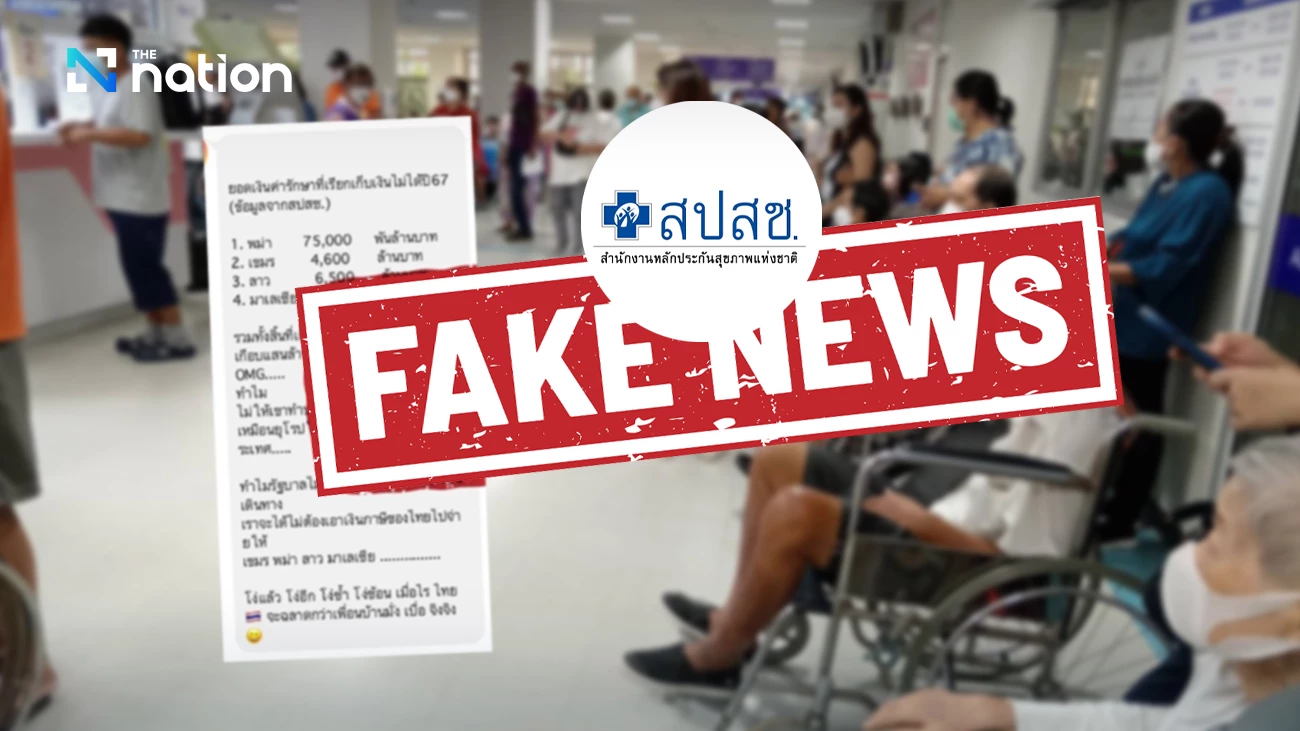Southeast Asia on Edge: Thai-Cambodian Border Row Deepens Amidst Accusations, ICC Threats & Fake News Onslaught

Recent tensions between Thailand and Cambodia have been dominated by a series of significant events, including diplomatic disputes, border conflicts involving landmines, and a pervasive wave of disinformation. These issues have prompted various responses from both nations, alongside international and regional bodies.
One recurring source of friction has been the spread of alleged false information. The National Health Security Office (NHSO) in Thailand publicly refuted social media claims suggesting that nearly 100 billion baht was spent last year on medical care for citizens of neighboring countries, including Myanmar, Cambodia, Laos, and Malaysia, without reimbursement. Similarly, Thailand's Ministry of Foreign Affairs vehemently denied allegations circulating on social media that Thailand was planning to assassinate Cambodian leaders Hun Sen and Hun Manet. These accusations, made by Cambodia's Minister of Information, were dismissed as unfounded and intended to defame Thailand, particularly at a time when both sides were engaged in General Border Committee (GBC) discussions aimed at peaceful resolution.
The border conflict itself has been a major focus, particularly concerning the use of landmines and their impact on civilians. The Royal Thai Army (RTA) led an ASEAN Interim Observation Team (IOT) to the Thai-Cambodian border to monitor alleged breaches of international law and ceasefire conditions by Cambodian troops. This mission followed earlier visits by ASEAN envoys and representatives from countries that ratified the Ottawa Convention, which bans the use of landmines. During these visits, evidence of anti-personnel mines allegedly laid by Cambodian troops was observed, and affected residents were interviewed. The International Committee of the Red Cross (ICRC) also assessed the humanitarian impact of cross-border attacks on civilians in Thai provinces such as Surin, Si Sa Ket, and Ubon Ratchathani, gathering facts and interviewing residents for a confidential report to be submitted to both governments.
Disinformation has played a significant role in escalating tensions, with the Ministry of Digital Economy and Society (DES) reporting that eight out of the top ten fake news items in one week were related to the Thai-Cambodian border conflict, with the top three specifically concerning the border situation.
Legal and diplomatic actions have also been pursued. Acting Prime Minister Phumtham Wechayachai mentioned that academics might propose suing Cambodian Prime Minister Hun Manet and his father, Hun Sen, in the International Criminal Court (ICC) as war criminals, following a National Security Council (NSC) resolution to file criminal and civil lawsuits in Thai courts for deaths, injuries, and property damage caused to Thais by Cambodian troops. Separately, the government spokesman Jirayu Houngsub accused Cambodians of betraying Thai hospitality by establishing a community on Thai soil at Ban Nong Chan village in Sa Kaeo. This area, originally a temporary shelter for Cambodian refugees fleeing civil war in 1977, allegedly saw refugees refusing to return home and expanding their community, leading to what Thailand perceives as encroachment. Thailand erected razor wire within its boundaries to protect its territory and deter further attacks and landmine deployment, insisting this did not violate GBC agreements.
Despite a 13-point ceasefire agreement signed during a GBC meeting in Malaysia, provocations and intimidation persisted. Cambodia has pressured Thailand to dismantle barbed wire fences in the Ban Nong Chan area. This long-standing issue stems from the refugee situation after the Khmer Rouge era, where some Cambodians chose not to return, and their descendants have since expanded settlements, claiming the area as Cambodian sovereign land, while Cambodia rejects Thailand’s border demarcation claims.
International engagement has also been noted, with Phumtham Wechayachai meeting a US congressional delegation to discuss Thai-US relations, security, economic issues, and the Thai-Cambodian border conflict. The US delegation was scheduled to observe the conflict zone and subsequently travel to Cambodia. Phumtham emphasized the need for truth over propaganda and peaceful solutions, confirming he raised the issue of Cambodian mine-laying activities with the US lawmakers, highlighting it as a priority over other discussions like Memoranda of Understanding 43 and 44.
Recommended Articles
Cross-Border Fury: Thailand and Cambodia Locked in Tense Standoff, Accusations Fly

Rising tensions dominate the Thai-Cambodian border, fueled by disinformation and serious accusations, including alleged ...
Southeast Asia Erupts: Thai-Cambodian Border Crisis Escalates Amidst Accusations and Fake News

Recent events highlight escalating tensions along the Thai-Cambodian border, fueled by allegations of assassination plot...
Escalating Fury: Thailand Accuses Cambodia of 'War Propaganda' Amidst Tense Border Standoff

Thailand and Cambodia are embroiled in heightened border tensions, marked by Thailand's rejection of alleged assassinati...
Border Blazes: Thailand & Cambodia's Fiery Standoff Ignites Fears, Sparks ICC Threats

Tensions persist along the Thai-Cambodian border, marked by mutual accusations of assassination plots and territorial en...
Southeast Asian Tensions Soar: Thailand and Cambodia Clash Over Border, Leaders Face ICC Threats

Thailand is actively addressing ongoing border tensions with Cambodia, rejecting assassination claims and confronting al...
Border Fury: Thai-Cambodian Tensions Mount Amid Assassination Plot Denials and Legal Threats

The Thai-Cambodian border remains a hotspot of diplomatic tensions, characterized by rejected assassination claims, disp...
You may also like...
Blockbuster Boxing Confirmed: Canelo vs. Crawford Set to Electrify Fans

In a highly anticipated boxing event, undisputed super middleweight champion Canelo Alvarez will face undefeated four-di...
Boxing World Rocked: Heavyweight Icon Joe Bugner Dies at 75

Heavyweight boxing legend Joe Bugner, known for his 32-year career and facing titans like Muhammad Ali and Joe Frazier, ...
Inside 'Wednesday' Mania: From Gala Sets to Future Season Cliffhangers and Iconic Costumes

The second part of "Wednesday" Season 2 on Netflix delves into the show's intricate costume and production design while ...
Critics Rave, Some Skeptical, as Olivia Colman & Benedict Cumberbatch's 'The Roses' Hits Screens

In the realm of recent cinematic releases, audiences are treated to a varied selection, including Jay Roach's dark comed...
BBNaija Star Phyna in Turmoil: Celebrities Mourn Sister's Death as She Quits Social Media

Big Brother Naija winner Phyna is mourning the tragic death of her sister, Ruth Otabor, who passed away on August 31, 20...
Music Titans Dominate AFRIMA 2025 Nominations: Davido, Burna Boy Lead the Pack!

Nigerian superstars Burna Boy and Davido lead the nominations for the 2025 All Africa Music Awards (AFRIMA), each securi...
Alexander Brothers Face Mounting Allegations: Lawyers Deny Claims Amidst New Revelations

The Alexander brothers, known in luxury real estate, face accusations of rape and sexual assault from over 60 victims, i...
Oasis Reunion Heats Up: Andy Bell Confirms Lineup Amidst Ticketmaster Legal Threats

Oasis is reuniting for a global tour in 2025, with bassist Andy Bell confirming his return to the band. Despite record-b...